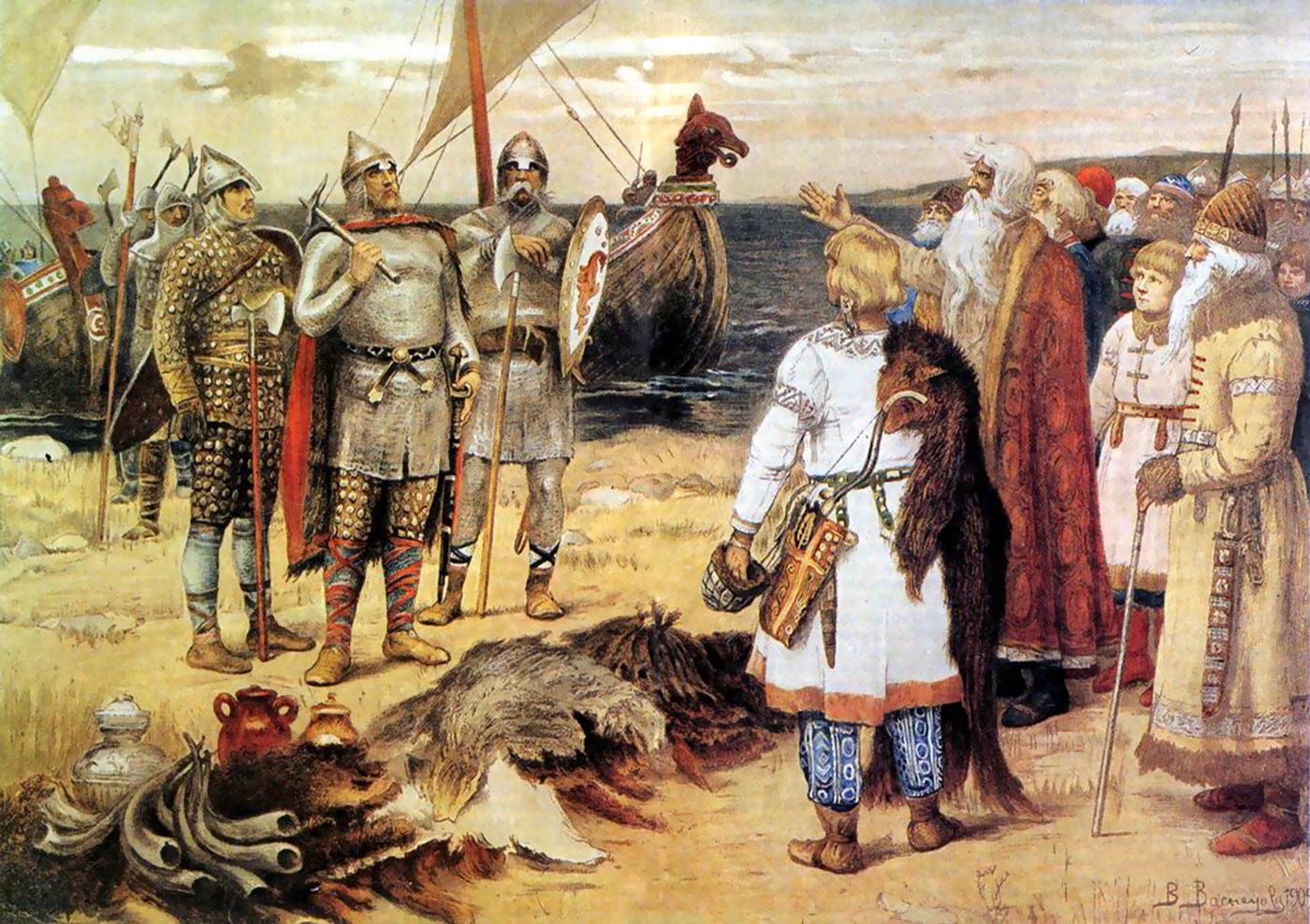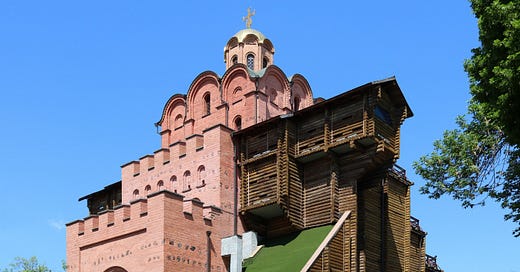Russians Are the Dark Scandinavians
Is Russian culture a a legacy of the Norse, and if so: why are they now so different?
The word “Russia” (and Rossija, Росси́я) derives from “Rus,” who were originally a Norse people who settled along the Dnieper River in present day Kyiv. The word “Rus” is derived from a Finnic language word that basically means “Swede” — similarly, Sweden is still ”Ruotsi” in Finnish.
Russians are Scandinavians? Well sort of. Their ancient relatives at least were. How did Russia get so far from its equality-loving Scandinavian hippie roots? Did someone sell his soul to the devil at some point between Kyivan Rus and modern Moscow? It sure seems like they did.
Before we get to that, let’s go back in history — back to Kyiv in the 9th century, when Moscow was still just a tiny village in a birch forest.
Kyivan Rus — the home of Russian culture and all Russian peoples — is, as the name implies, nested present day Kyiv. It was here that the proto Russia — a loose federation of East Slavic, Baltic, and Finnic peoples in Eastern and Northern Europe from the late 9th to the mid 13th century — lived in relative peace under the reign of the Rurik dynasty, founded by the Varangian — of Norse blood — Prince Rurik. The modern nations of Belarus, Russia, and Ukraine all claim Kievan Rus’ as their cultural ancestors, with Belarus and Russia deriving their names from it.
According to Rus’ Primary Chronicle — yes all of this history is actually recorded in one giant book — the first ruler to start uniting East Slavic lands into what has become known as Kievan Rus’ was Prince Oleg in the year 879 CE, the man who moved the capital to Kyiv. After Oleg’s reign, Sviatoslav I achieved the first major expansion of Kievan Rus, fighting a war of conquest against the Khazars, a nomadic Turkic culture that was big in trade.
Vladimir the Great introduced Christianity with his own baptism and, by decree, extended it to all inhabitants of Kyiv and beyond. But Kyivan Rus’ reached its greatest extent under Yaroslav the Wise — from 1019 to 1054 — which is considered the golden period. Yaroslav’s sons assembled and issued the nation’s first written legal code, the Russkaya Pravda — “Rus’ Justice” — shortly after their father’s death.
But Kyivan Rus soon began to decline — its peaceful period ending — during the 12th century, disintegrating into various rival regional powers. It was further weakened by economic factors, such as the collapse of Rus’ commercial ties to the Byzantine Empire due to the decline of Constantinople and the accompanying loss of important trade routes through its territory. The state finally fell to the Mongol invasion of the 1240s.

Controversy persists over whether the Rus’ were Varangians (Norse) or Slavs, with the current scholarly consensus holding that they were an ancestrally Norse people that quickly assimilated into Slavic culture — so a mix of the two. This uncertainty is due largely to a scarcity of contemporary sources. Attempts to address this question instead rely on archaeological evidence, the ancient accounts of foreign observers, and legends and literature from centuries later.
To some extent, the controversy is related to the foundation myths of the modern states in the region. While Varangians were Norse traders and Vikings, some Russian and Ukrainian nationalist historians argue that the Rus’ were Slavs, not Norse.
But the connection of Kyivan Rus with the Norse — which is confirmed by both extensive Scandinavian settlement in Belarus, Russia, and Ukraine, as well as Slavic influences in the Swedish language — is undeniable.
Most now agree that Kyivan Rus was indeed Norse — at least the founders and rulers were — and that these transplants quickly become nativized — adopting Slavic languages and other cultural practices in their new adopted home along the wide river Dnieper.
So maybe the Russian dark side comes from the Slavics, and not the Norse? I guess we’ll likely never know for sure. But one thing seems clear: the leaders of Russia — especially Putin — don’t share anything in common with the Scandinavians today, peace- and welfare-loving and. home to one of the most egalitarian cultures on earth.




